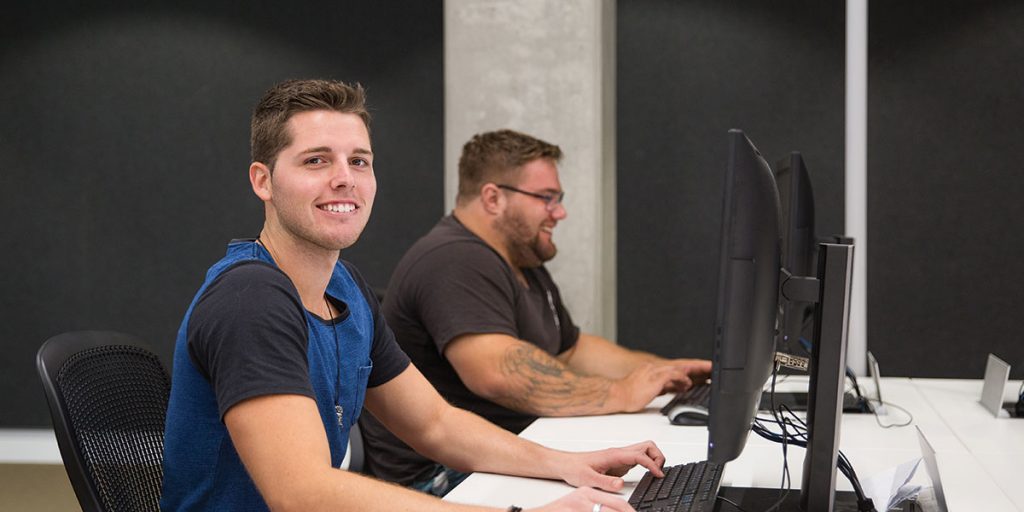A Certified Practising Accountant (CPA) is a qualified finance, accounting and business professional with specialist knowledge in accountancy. They hold a postgraduate qualification recognised by CPA Australia, one of the world’s largest accounting bodies with more than 173,000 members. And around 25,000 work in senior leadership positions. With the right accounting degree, training and experience, you could become one of them.
Joining the growing number of qualified CPAs in the accounting profession can open up a world of career opportunities. Better still, you’ll also enjoy higher earning potential and greater professional recognition from being affiliated with an accredited body. For example, you could launch into leadership and executive accounting roles. You can also give your career a global boost and work internationally. Let’s dig deeper.
What do CPAs do?

CPAs do much more than prepare tax returns and crunch numbers all day. Employers across various industries highly value them, and there are a range of accounting careers to explore.
Public accounting: Want an accounting career where you’ll work with individuals and businesses? As a CPA in public accounting firms, you’ll engage in specialist tasks such as auditing, tax preparation, and financial consulting. Additionally, you can expect to undertake bookkeeping, consumer and commercial credit services, financial reporting, and financial planning/advice.
Corporate accounting: Get set to work in corporations engaging in crucial accounting practices, such as financial reporting, internal auditing, and tax compliance. As a CPA in corporate accounting, you’ll spend your days preparing organisational financial statements and ensuring the books are balanced. You’ll oversee the company’s financial transactions and record expenses, incomes, sales and purchases across each financial year. So, as an accounting professional, you’re critical to the daily business operations.
Government and not-for-profit sectors: Want an exciting numbers-driven career that oversees financial activities at Commonwealth, state or local levels? Government accounting could be your perfect match. There are many job opportunities for CPAs in government accounting, ranging from finance officer to senior accountant and beyond. Or for an accounting career with real impact, your career path could lead to not-for-profit organisations. Make a real difference by supporting community organisations.
What are the benefits of becoming a CPA?
Firstly, you’ll have a broader range of career paths than a non-CPA. For example, roles in public accounting, corporate finance, government and not-for-profit organisations. CPAs are in high demand across all industries, so you’ll have excellent job security. You’ll also have a competitive advantage over your peers with access to high-profile and global companies. You could even work for a national association or CPA firm.
Higher earning potential is another advantage. The average CPA salary is around $93,000 (Payscale, 2024). And those in senior accounting profession roles have earning potential ranging from around $110,000 to $140,000 (Seek, 2024). To top it all off, you could enjoy performance bonuses and other benefits due to their specialised skill set.
Being a CPA comes with professional credibility and prestige. You’ll get the tick of approval from employers thanks to your trusty CPA license. Clients, employers and colleagues will trust and rely on your professional excellence, integrity and expertise. Now that’s something to be proud of!
CPA requirements
To become a CPA, you’ll need to hold a bachelor’s or postgraduate qualification with at least eight subjects. You’ll also complete the CPA Program, which combines academic study (four compulsory subjects and two electives) and practical experience.
CPA Progam: The program requires you to complete 36 months of relevant work experience, which can be done before, during, or after your studies. You must achieve at least 10 specific skills across four categories. These skills must include four technical skills, two personal effectiveness skills, two business skills, and two leadership skills.
CPA exam: Before completing the program, you must pass the exams assessing your accounting knowledge and understanding. The exam covers topics in your CPA Program study guide, and results have a scale range of 100-900. You’ll need to achieve an exam score of 540 or above to pass.
State-specific requirements: While all states require that you pass the CPA exams, you should refer to each state’s licensure requirements for information on individual state boards.
Challenges and considerations

CPA exam: The exam covers a broad range of topics, so the material is not something you can cram in just a few late-night study sessions. But you can relax. All the content comes from your study guide, so there should be no surprises. With the right preparation and careful attention to technical subjects – like financial reporting, financial risk and management, and taxation – you’ll have it in the bag!
Continuing education: To maintain your CPA license, you must keep on top of your professional development. This involves completing 120 hours of professional development (PD) over three years (minimum of 20 hours per year). Postgraduate accounting courses, like our Graduate Diploma of Accounting or Master of Professional Accounting (Professional Practice), are the perfect PD to update your accounting skills and knowledge.
Ethical considerations: You’ll have a duty to provide advice and assistance that complies with ethics and professional considerations. Avoid conflicts of interest, maintain confidentiality, avoid contributing to unlawful acts, provide well-informed advice, and have clients’ best interests in mind. If in doubt, refer to standards, like the APES 110 Code of Ethics for Professional Accountants, to help guide your practice.
Career paths for CPAs
Many career paths are available to CPAs, including public accounting, corporate accounting, government accounting, and not-for-profit accounting. But what are some specific jobs within these areas of accounting? Here’s a sneak peek:
- Crypto and blockchain auditor
- Digital transformation consultant
- Environmental accountant
- Financial planner
- Forensic accountant
- International tax consultant
- Management accountant
- Risk consultant
Learn more about eight accounting careers where you could be a real asset.
CPA salary and job outlook
There are around 206,200 accountants in Australia, with an annual predicted job growth of 2,500 (Jobs and Skills Australia, 2024). And the median weekly earnings for practising accountants is around $1,840. However, the average salary for CPAs can vary in different regions and industries. Factors impacting accountancy earning potential include your experience, location, and specialisation. So it pays to do your research when choosing where you’ll work. Look around job sites, like Seek and Indeed, to find a role that matches your skill set and experience.
Tips for becoming a CPA
- Study one of our industry-recognised accounting degrees.
- Bookmark CPA Australia’s website for everything you need about the program.
- Check out our top tips for studying online for general advice on setting good study habits – this will be useful for CPA exam prep.
- Find out how to gain the necessary work experience to become a CPA. The industry connections you’ll form at Charles Sturt will pay off!
- Explore each state’s CPA licence and registration requirements – and see which jobs match your career goals and interests.
Become a CPA

So now you know what a CPA is and what they do, it’s time for you to take your first or next step in your accounting career. And we have the right course to start or advance your CPA journey.
Why study accounting with Charles Sturt?
Do you have a non-accounting undergraduate qualification? Our Master of Professional Accounting meets the professional accreditation requirements of CPA Australia and Chartered Accountants Australia and New Zealand. This is the ideal course to start your CPA journey.
Already have an accounting degree? Explore our full range of accounting courses to take your career to the next level!
Frequently asked questions
What is the difference between a CPA and a chartered accountant?
A Certified Practising Accounting (CPA) is a highly qualified accountant with a degree overseen by the accounting body CPA Australia. In comparison, a chartered accountant (CA) is a more technical tax and accounting specialist. CAs are often found in larger companies, industries or corporate firms.
Can I become a CPA without a business degree?
Yes. If you hold an undergraduate degree that’s not accounting or business-related, our Master of Professional Accounting is your ideal pathway to becoming a CPA.
How long does it take to become a CPA?
You’ll need to complete an accounting degree, typically three years of full-time study. And you’ll also need to complete the CPA Program, including 36 months of relevant work experience. But relax. You have six years to complete the CPA Program requirements to achieve CPA status.
Is becoming a CPA worth it?
Absolutely! Becoming a CPA is most definitely worth it. Just look at your higher earning potential, career advancement options, job security and industry credibility.



You must be logged in to post a comment.